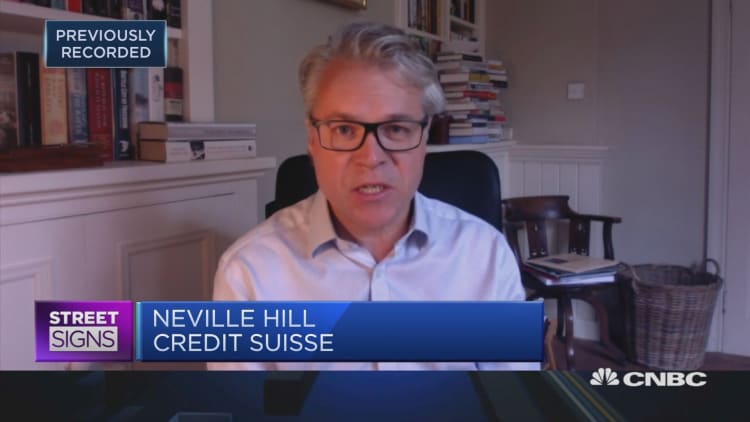If the coronavirus crisis leads to more inward-looking government policies, protectionism and nationalism, humanity could face an "even bigger" and "more deadly" pandemic in the future, a policy expert has warned.
Ian Goldin, professor of Globalisation and Development at the University of Oxford, former advisor to Nelson Mandela and ex-vice president of the World Bank, told CNBC that the direction that global politics takes following the pandemic could have a far-reaching negative impact.
"If what comes out of this is more nationalism and protectionism, the result is going to be an even bigger pandemic in the future, which could be more deadly, climate change, more financial crises, cyber-attacks, more tension, Cold War 2.0, and that is extremely worrying," Goldin said.
"So we face a choice. Either the pandemic teaches us to be more globalized in politics, to stop the next pandemic, to cooperate, to restore global growth, or we get more national, in which case we're in a downward spiral."

Goldin has been predicting a widespread pandemic for several years, warning in his 2014 book "The Butterfly Defect" and a 2018 BBC series that a disease outbreak was the most likely cause of the next global economic crisis.
But he told CNBC that the Covid-19 pandemic and its economic effects had been worsened by the adoption of nationalistic politics, and a failure of global governance.
"I don't blame the WHO (World Health Organization) — I think it's done the best it can under the circumstances, but it has been under-resourced, it hasn't been given the powers it requires. And the people to blame for that are the shareholders, the big governments of the world who fund and direct it," he said, speaking to CNBC in a phone call.
"This is a failure to manage the system, particularly by the leading powers, and it's really the U.S. turning its back on the world which has exacerbated it," he said. "So at the biggest level, this is a reflection of the failure to manage globalization."
Moving forward, he added, the pandemic should teach the world that it needs greater cooperation between countries — but he warned that this what not what was happening.
"We're seeing countries try to set up firewalls. Unfortunately, there's no wall high enough to keep out a pandemic or climate change or any of the great risks," Goldin said. "But what the high walls do keep out is the ideas, the people, the technologies, the investments, the markets that we need to thrive."

